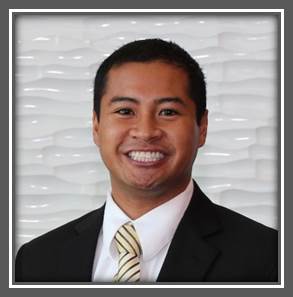VMA Chief Executive Steve Romer To Leave Association
Venue Management Association {Asia and Pacific} Limited (VMA) President Steve Harper CFE, announced that VMA Chief Executive Steve Romer has tendered his resignation from the organization after three and a half years in the position. Harper says that while it is disappointing to lose Romer, the VMA Board wishes him well in his new endeavors.
“Steve leaves on a high, with the VMA now elevated to a new level of professionalism, along with the delivery of significant membership growth, increased membership benefits, the further development of professional and educational programs and a strong financial position to enable the organization to return even greater benefits to its members,” Harper said.
“The VMA has benefitted from Steve’s venue management experience not only as chief executive but also his passion and commitment to the VMA over many years including nine years as a member of the Board and three years as chairman of the Association.”
Romer says it has been an absolute privilege to lead the VMA as CEO, adding “It’s been rewarding and satisfying to build a new  team, and to work closely with a very passionate Board. I look forward to seeing the Association continue to grow and flourish in the future, albeit as a proud Member.”
team, and to work closely with a very passionate Board. I look forward to seeing the Association continue to grow and flourish in the future, albeit as a proud Member.”
The VMA Board will immediately commence the search for a new chief executive to take the helm and guide the VMA into the future supported by the extraordinary talent and professionalism of the team based at the VMA headquarters on the Gold Coast.
Romer will remain as chief executive until late October.
NFL Stadiums Show Off Their Renovations For The 2017 Season
The NFL season is now fully upon us after two weeks of regular-season play. If you have experienced any of the action live, you will note that there are at least eight stadiums that have undergone renovations during the past year. This does not take into account sparkling new venues such as in Atlanta.
Gridiron Stadium Network has a nice recap of what is new and … what is new at all the included venues. It has been one of the busiest off-seasons in terms of renovation for NFL stadiums in recent years and makes the fan experience all that much more pleasurable.
Have a look at what is new here.
Call for Session Proposals

Lead the conversation at VenueConnect 2018 in Toronto by proposing a session today! Our sessions are interactive, full of relevant content, practical tools, and emerging best practices in venue management today.
Becoming a presenter is a great way to expand your network, assist in the educational growth of our association, and share experiences. Be bold and innovative!
Submit your session proposal today! Deadline for submissions is Sunday, October 1st.
If you’re not ready to submit a session proposal but would like to volunteer to sit on a future IAVM education panel, we want to hear from you too. Simply submit your information to be a panelist, and we will add you to our database. Your information will be shared with the appropriate IAVM Programming Committee for future consideration.
We look forward to seeing you in Toronto!
Mentor Connector: Recognition Where It’s Due
 By Justin Aquino
By Justin Aquino
When athletes become champions and actors and actresses are announced as winners at award shows, it is common for them to acknowledge mentors that have helped them to achieve the highest honor in their respective fields. The venue management industry is no different. I have spoken to many who have achieved IAVM’s Certified Facilities Executive’ (CFE) designation, the industry’s most distinguished recognition, and most tribute their mentors in motivating them to become one of the industry’s finest.
IAVM offers its members a free 12-month long mentoring program called Mentor Connector. Partnerships start in April and October annually and provide personal one-on-one mentoring. No matter how long you’ve been in the industry, no matter your age and role (mentor or mentee), participants use this opportunity to enhance and grow in our profession. As an IAVM member since graduating college, I have always sought ways to take full advantage of my membership. Not having the opportunity to go to the many schools and conferences our association provides, I looked for other opportunities to interact with IAVM members. The Mentor Connector program immediately stuck out and I applied to be a mentee. The application process was quick and easy; the form asks questions to determine career aspirations and the type of mentor preferred. My answers assisted the Mentoring Committee in matching me with the right mentor.
I have been fortunate enough to complete one 12-month cycle. After achieving my goals I had set during that year and gaining new knowledge and skills, I was hooked. So I signed up again and I am currently participating in another cycle with a new mentor. The goals have changed but the new knowledge and skills I have acquired so far makes this program very worthwhile. The support my mentor gives me in achieving my goals has given me more confidence in my job. Mentorships don’t have to last for the official term of your partnership. I look at them as life-long relationships that will endure throughout a career…industry colleagues you can always reach out to for advice and assistance.
Now, as I share my experiences and successes in the industry, mentors throughout my career are always mentioned – just like athletes, actors and actresses – give recognition to their mentors. To my mentors who have seen my potential and took a risk, those that have seen my mistakes and tutored me to improve and the many mentors who have supported and applauded me in my successes. I can’t thank you all enough and I’m certain you know who you are.
A new cycle begins in October with the mentoring committee hosting an informational webinar on Friday, September 22 at 3:30pm (EST). Register here. Visit iavm.org/mentor for more details.
Scotiabank Signs 20-Year Deal For Naming Rights In Toronto
Air Canada Centre in Toronto will transition to a new naming rights holder when the venue officially becomes Scotiabank Arena on July 1, 2018. The deal is for 20 years with a hefty price tag of $40 million a year, making it one of the most lucrative naming rights deals in professional sports. The venue is home to the NHL Toronto Maple Leafs and the NBA Toronto Raptors and has been known as the Air Canada Centre since opening in 1999.
Bob Hunter, CFE, chief project development officer for Maple Leaf Sports & Entertainment, Air Canada Centre, termed the deal a “20- year marriage,” while acknowledging at the same time that it is not a divorce from Air Canada as they will remain the official airline.
year marriage,” while acknowledging at the same time that it is not a divorce from Air Canada as they will remain the official airline.
“Scotiabank has been a partner of ours for a long time and at varying degrees over the years,” Hunter said. “They were originally even a small owner of the Raptors when the franchise was purchased, so they have been connected for a long time.”
Hunter said that as the naming rights deal was reaching its end with Air Canada that looking at one of the institutions in the downtown area of Toronto made sense, especially with the chops of a Scotiabank.
“They already have their brand on a number of buildings,” he said. “It was a great opportunity for both sides and gives us another great Canadian establishment to work with. It was sort of a natural.”
Hunter said that the association for Scotiabank with both professional teams and the building itself are major benefits for the client.
“There are a lot of associated pluses with that,” Hunter said. “There are a bunch of different premium services that we will go with them on in the next 12 months to ensure that their clientele will be getting a few extra perks such as special entrances and such.”
Already a Maple Leafs and Raptors sponsor, Scotiabank seized an opportunity that was available for more prominence on the local landscape.
“The key part is the title, but that’s not the total story,” Hunter said. “There’s a lot in the deal.”
As for the timing of the name change next July 1, it happens in the month that IAVM will be coming to Toronto for VenueConnect 2018. Could the timing have been strategic?
“We’re rolling the carpet out for IAVM,” Hunter said with a laugh. “No one else counts!”
Do you want to receive a Front Row News weekly digest?
Categories
- Allied (861)
- Architecture (147)
- Arenas (750)
- Career (897)
- Convention Centers (897)
- Education (623)
- Events (1,544)
- Food & Beverage (193)
- Foundation (113)
- Guest Experience (1,497)
- Industry News (2,270)
- Leadership (1,888)
- Marketing (150)
- Membership (2,001)
- Music (213)
- Performing Arts Centers (456)
- Professional Development (409)
- Research (128)
- Safety & Security (442)
- Sports (764)
- Stadiums (611)
- Student (159)
- Technology (516)
- Ticketing (92)
- Touring (82)
- Trends (365)
- Uncategorized (697)
- Universities (218)
- Video (25)
- Young Professional (198)
Twitter Feed
- Twitter feed loading
Recent Posts
- Simpleview Welcomes Industry Veteran, Evelyn Ingram, to Newly Created Venue Digital Strategy Role
- ‘Another One’ for Nicholas Family of Companies: Firm to Break Ground on Elk Grove Ice Arena in Suburban Chicago
- Venue Sustainalytics Launches Website for First-Ever Sustainability Benchmarking Platform for Event Venues
- Maverik Center Names Jeff Davis, CVE, CVP, CMP, as New General Manager
- McAllen and Hidalgo Promoter Joe Vera III, CFEE, CECD, Among Those We Will Miss
Categories
- Allied
- Architecture
- Arenas
- Career
- Convention Centers
- Education
- Events
- Food & Beverage
- Foundation
- Guest Experience
- Industry News
- Leadership
- Marketing
- Membership
- Music
- Performing Arts Centers
- Professional Development
- Research
- Safety & Security
- Sports
- Stadiums
- Student
- Technology
- Ticketing
- Touring
- Trends
- Uncategorized
- Universities
- Video
- Young Professional
Archives
- August 2025
- July 2025
- June 2025
- May 2025
- April 2025
- March 2025
- February 2025
- January 2025
- December 2024
- November 2024
- October 2024
- September 2024
- August 2024
- July 2024
- June 2024
- May 2024
- April 2024
- March 2024
- February 2024
- January 2024
- December 2023
- November 2023
- October 2023
- September 2023
- August 2023
- July 2023
- June 2023
- May 2023
- April 2023
- March 2023
- February 2023
- January 2023
- December 2022
- November 2022
- October 2022
- September 2022
- August 2022
- July 2022
- June 2022
- May 2022
- April 2022
- March 2022
- February 2022
- January 2022
- December 2021
- November 2021
- October 2021
- September 2021
- August 2021
- July 2021
- June 2021
- May 2021
- April 2021
- March 2021
- February 2021
- January 2021
- December 2020
- November 2020
- October 2020
- September 2020
- August 2020
- July 2020
- June 2020
- May 2020
- April 2020
- March 2020
- February 2020
- January 2020
- December 2019
- November 2019
- October 2019
- September 2019
- August 2019
- July 2019
- June 2019
- May 2019
- April 2019
- March 2019
- February 2019
- January 2019
- December 2018
- November 2018
- October 2018
- September 2018
- August 2018
- July 2018
- June 2018
- May 2018
- April 2018
- March 2018
- February 2018
- January 2018
- December 2017
- November 2017
- October 2017
- September 2017
- August 2017
- July 2017
- June 2017
- May 2017
- April 2017
- March 2017
- February 2017
- January 2017
- December 2016
- November 2016
- October 2016
- September 2016
- August 2016
- July 2016
- June 2016
- May 2016
- April 2016
- March 2016
- February 2016
- January 2016
- December 2015
- November 2015
- October 2015
- September 2015
- August 2015
- July 2015
- June 2015
- May 2015
- April 2015
- March 2015
- February 2015
- January 2015
- December 2014
- November 2014
- October 2014
- September 2014
- August 2014
- July 2014
- June 2014
- May 2014
- April 2014
- March 2014
- February 2014
- January 2014
- December 2013
- November 2013
- October 2013
- September 2013
- August 2013
- July 2013
- June 2013
- May 2013
- April 2013
- March 2013
- February 2013
- January 2013
- May 2012
- March 2012
- December 2011
- November 2011
- October 2011
Recent Comments
- Frank Bradshaw, Ph.D., CVE on John Meyer, CVE, a Tireless Advocate of Certification for Venue Professionals, Has Died
- Neil Sulkes on Hilary Hartung, Friend to Many in Venue Marketing, Has Left Us
- Jason Parker, CVE on The Devastation of Hurricane Helene and How We Can Support One Another
- Larry Perkins on Touhey Testifies Against Speculative Ticketing Before Congressional Subcommittee
- Peter Secord on Major Players for Planned Elkhart Amphitheater Were in the Mix at VenueConnect
